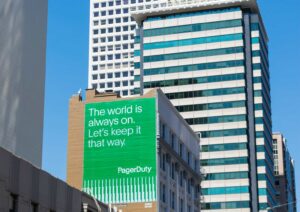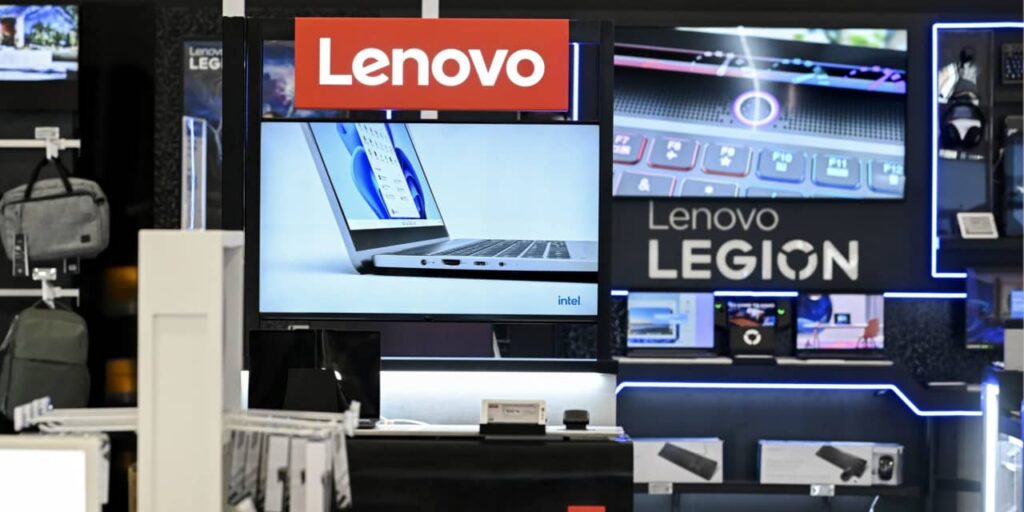There is fresh evidence that the personal-computer market is emerging from its funk. Demand now appears to be on the mend after sales, lifted by a Covid-era surge, declined on a year-over-year basis for two years.
Lenovo
Group, the world’s largest supplier of the devices, posted solid financial results for its fiscal third quarter ended Dec. 31, highlighted by a return to growth in PCs.
Lenovo’s overall December quarter revenue was $15.7 billion, up 3% from a year ago, with profits of $2.64 a share. Margins and revenue grew sequentially for the second quarter in a row.
Lenovo’s intelligent devices group, which includes both PCs and
Motorola
smartphones, posted 6.7% growth in the quarter. Lenovo said it now has 23.8% of the global PC market, the highest level since the start of the Covid-19 pandemic.
Lenovo’s results hint at potentially strong results for the January fiscal quarter reports due next week from rivals
HPInc.
and
Dell Technologies.
In Hong Kong trading, Lenovo shares rallied 3.3%; its U.S.-traded American depositary shares were 1.4% higher. HP Inc. rose 1.7% higher, while Dell, viewed as an artificial-intelligence infrastructure play, gained 8.9%, spurred on by the strong results on Wednesday from
Nvidia.
Matthew Zielinski, executive vice president and president of international markets for Lenovo, said his team is “jazzed” about the outlook for the first time in a while, for multiple reasons.
One factor, he says, is that “inventory is healthy again” across the PC supply chain, dropping back to pre-Covid levels after a period when unusually high inventories were weighing on prices.
Zielinski also said he is seeing improving demand in a number of places, with North American PC revenue up 20% in the quarter compared with a year ago. There is strength in both the public sector and small-and-medium sized business segments, and Lenovo is beginning to see large enterprises buying again, he said.
AI-enabled PCs weren’t really a factor in the December quarter, Zielinski said, but he expects sales of AI PCs to grow rapidly in the second half of the calendar year. He thinks that 20% of all PCs sold in 2024 will be AI PCs, with 60% of those sales to commercial buyers. By the end of 2026, he said, half of the world’s installed PC base will be AI devices.
In essence, his view is that all PCs are shifting to become AI-capable, and that people are about as likely to buy a non-AI PC as they are to choose 4G mobile phone over a 5G one.. Eventually, every PC will be an AI PC.
Additional positive news is that consumers are beginning to replace PCs purchased during the early part of the pandemic. And enterprise buyers are beginning to replace some PCs ahead of
Microsoft’s
termination of support for Windows 10 starting in 2025.
Write to Eric J. Savitz at eric.savitz@barrons.com
Read the full article here












